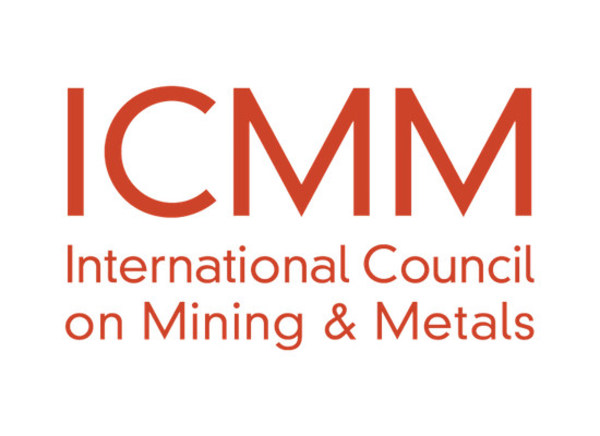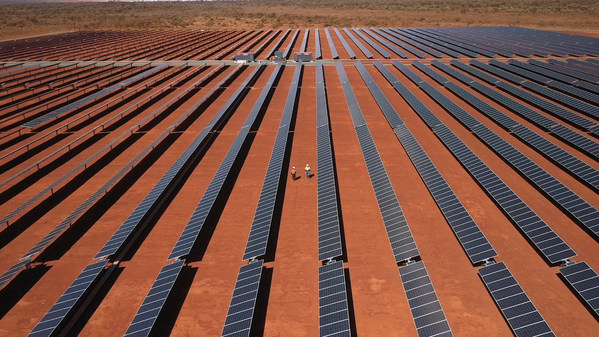ICMM Makes Landmark Climate Commitment to Net Zero by 2050 or Sooner
 |
LONDON, Oct. 5, 2021 /PRNewswire/ — Today, members of the International Council on Mining and Metals (ICMM) have committed to a goal of net zero scope 1 and 2 greenhouse gas (GHG) emissions by 2050 or sooner, in line with the ambitions of the Paris Agreement. This landmark commitment was made in an open letter signed by the CEOs of ICMM's company members.

Solar panels at Gold Field’s Granny Smith mine (Image Credit: Gold Fields)
Rohitesh Dhawan, CEO, ICMM, said: "As the suppliers of the minerals and metals that are critical to decarbonisation and sustainable development, we have a particular responsibility to minimise the impact of our operations on the environment. ICMM members' collective commitment to net zero scope 1 and 2 GHG emissions by 2050 is a pivotal moment in our history. We are speaking with one voice, representing approximately one third of the global mining and metals industry – including more than 650 sites in over 50 countries – so that we drive emissions reduction at a significant scale.
"ICMM members have and will continue to set meaningful short and/or medium-term targets to build clear pathways to achieving this goal, while also accelerating action on addressing scope 3 emissions and enhancing disclosure. We encourage other mining and metals companies, suppliers and customers to join us in decarbonising commodity value chains so that we collectively accelerate climate action in our wider industry."
Gonzalo Muñoz, UNFCCC High Level Climate Action Champion, said: "I welcome the leadership and joint ambition of ICMM members to commit to a goal of net-zero scope 1 and 2 GHG emissions by 2050 or sooner, and I strongly encourage companies to set scope 3 GHG emissions reduction targets by the end of 2023. The High-Level Climate Action Champions encourage members to strive to set the most ambitious science-based targets possible in line with the criteria of the Race to Zero campaign."
Although we have individual decarbonisation targets which in some cases go beyond ICMM's collective commitment, this represents a joint ambition. The rate and nature of the ultimate decline in emissions will vary across the different commodities and geographies represented by our diverse membership. Yet our approach to individually setting and meeting targets will be consistent and include the following, no later than the end of 2023 where these do not already exist:
- Setting Scope 1 and 2 targets: we will build clear pathways to achieving net zero Scope 1 and 2 GHG emissions by 2050 or sooner, through meaningful short and/or medium-term targets.
- Accelerating action on Scope 3 GHG emissions: we recognise that Scope 3 is critical to minimising our overall impact and we will set Scope 3 targets, if not by the end of 2023, as soon as possible. Although all Scope 3 action depends on the combined efforts of producers, suppliers and customers, some commodities face greater technological and collaborative barriers than others. We will play a leading role in overcoming these barriers and advancing partnerships that enable credible target setting and emission reductions across value chains.
- Covering all material sources: our targets will cover all material sources of emissions, aligning to the GHG Protocol definition of organisational boundaries and materiality.
- Focussing on absolute reductions: for some operations, intensity rather than absolute targets may be more appropriate in the short and medium term. Where intensity targets are used, we will disclose the corresponding absolute increase or decrease in GHG emissions.
- Applying robust methodologies: we will use target-setting methodologies that are aligned with the ambitions of the Paris Agreement and disclose in detail the assumptions we use.
- Disclosing openly and transparently: we will report our progress on Scopes 1, 2 and 3 annually, obtain external verification over our performance, and report in alignment with the recommendations of the Task Force on Climate-related Financial Disclosures.
These commitments are additional to and have been incorporated into an update of ICMM's Climate Change Position Statement which had several pre-existing commitments on performance and disclosure. Action on climate change is an integral part of ICMM's Mining Principles, representing the comprehensive commitment to a responsible mining and metals industry.
Notes to editors
This release has been translated from English by a third party. ICMM is not liable for any inaccuracies in this translation.
English, Spanish, Portuguese, Japanese, Russian, French and Chinese versions of the open letter and ICMM's Climate Change Position Statement will be available on our website:
- The open letter is available here.
- ICMM's updated Climate Change Position Statement is available here.
Supporting assets are available to download from ICMM's media briefing pack (including quotes from several ICMM member CEOs and high res images from some of our company members that are available for publication with the piece – please credit the source company).
About ICMM
ICMM is an international organisation dedicated to a safe, fair and sustainable mining and metals industry. Bringing together 28 mining and metals companies and over 35 regional and commodities associations, it strengthens environmental and social performance and serves as a catalyst for change, enhancing mining's contribution to society. Every ICMM company member adheres to its Mining Principles which incorporates comprehensive environmental, social and governance requirements, robust site-level validation of Performance Expectations and credible assurance of corporate sustainability reports.
ICMM's 28 company members are: African Rainbow Minerals, Alcoa, Anglo American, AngloGold Ashanti, Antofagasta Minerals, Barrick, BHP, Boliden, Codelco, Freeport-McMoRan, Glencore, Gold Fields, Hydro, JX Nippon Mining & Metals, Minera San Cristóbal, Minsur, Mitsubishi Materials, MMG, Newcrest, Newmont, Orano, Polyus, Rio Tinto, Sibanye Stillwater, South32, Sumitomo Metal Mining, Teck and Vale.








